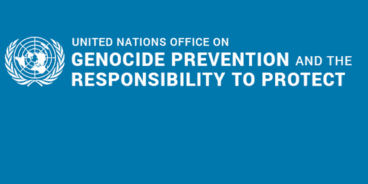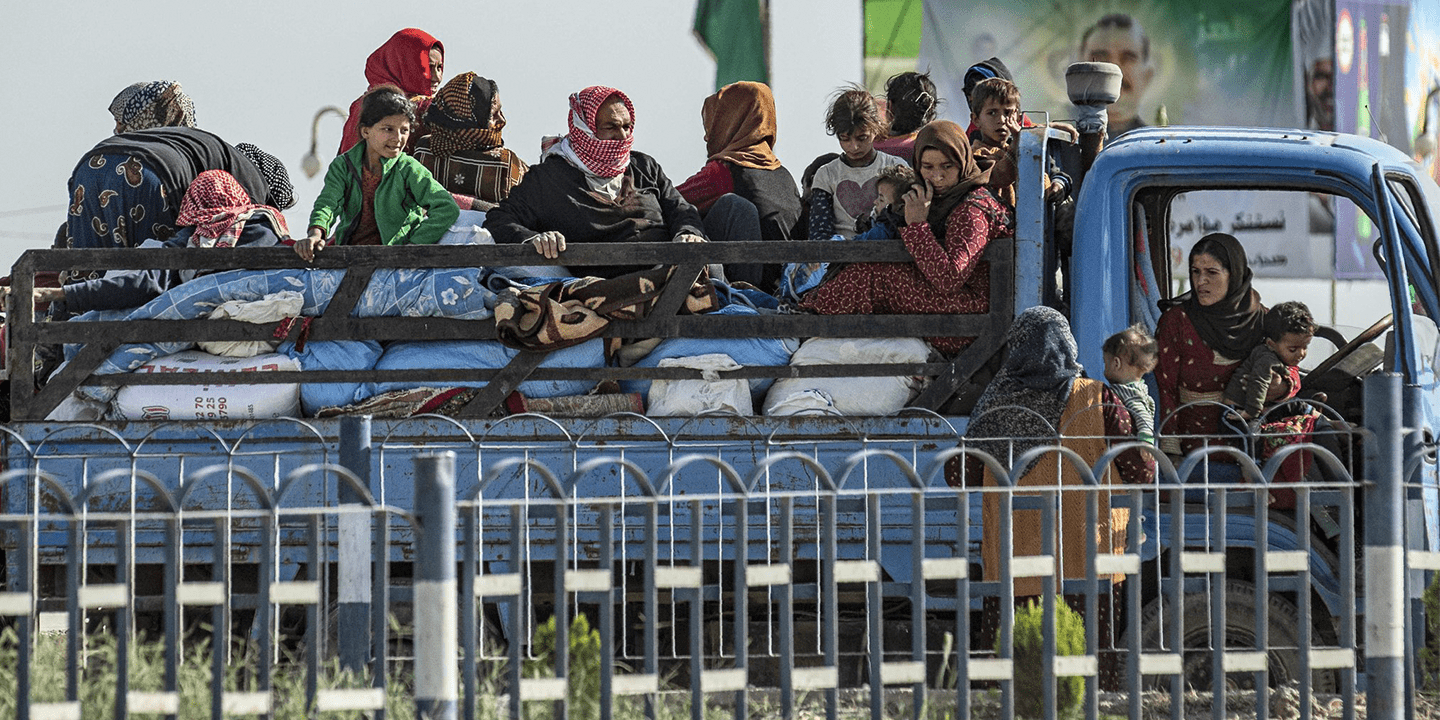

Atrocity Alert No. 176: Syria, Burkina Faso and Burundi
Atrocity Alert is a weekly publication by the Global Centre for the Responsibility to Protect highlighting situations where populations are at risk of, or are enduring, mass atrocity crimes.
Threat of war crimes and ethnic cleansing mounts in northeast Syria as Turkish offensive continues
Since Turkey launched its military incursion into northeast Syria one week ago, there have been widespread reports of civilian casualties caused by air strikes and artillery fire, as well as by Turkish ground forces fighting against the Kurdish Peoples’ Protection Units (YPG) and the Syrian Democratic Forces (SDF). The Turkish offensive has resulted in mass displacement, with more than 160,000 civilians fleeing over the past week. Human rights activists and Kurdish representatives have also expressed fears of “ethnic cleansing” being perpetrated by Turkish forces.
Since the offensive began last Wednesday, 9 October, the UN Office of the High Commissioner for Human Rights (OHCHR) has documented attacks on five health facilities by Turkish forces and affiliated non-state armed groups, as well as attacks on water supplies and bakeries. After a film emerged of the summary execution of civilians by the Turkish-backed armed group Ahrar al Sharqiya on 12 October, OHCHR warned that Turkey could be responsible for possible war crimes.
Turkish President Recep Tayyip Erdoğan stated on 13 October that Turkey will not halt its offensive and has ruled out any peace negotiations with Kurdish political representatives. The Turkish offensive has forced the YPG and SDF to broker a deal with Syrian President Bashar al-Assad. On 14 October Syrian government troops moved into some towns and villages in northeastern Syria that have previously been controlled by the YPG and SDF. This marked the end of more than five years of Kurdish self-rule across most of northeast Syria.
Turkey’s stated goal is to establish a “safe zone” in northeast Syria after it has been “cleared” of the YPG and SDF, and to resettle up to two million Syrian refugees who are currently in Turkey. Under international law, returns of refugees and other displaced persons must be undertaken in accordance with the principle of non-refoulement and must be safe, voluntary and dignified. Turkey’s planned “safe zone” in northeast Syria would appear to meet none of these criteria.
Risks associated with a potential resurgence of the so-called Islamic State of Iraq and the Levant (ISIL) are also high as Kurdish forces are struggling to hold thousands of ISIL members in prisons in northeast Syria. At least 750 suspected ISIL members and supporters escaped from Ain Issa camp in Raqqa governorate on 10 October. ISIL poses an existential threat to Kurdish, Yazidi and other minority communities in Syria.
On 15 October the UN Special Advisers for the Prevention of Genocide and the Responsibility to Protect released a joint statement arguing that, “civilians of Syria continue to live through one of the worst conflicts of our time, with repeated violations of their basic rights and protections guaranteed under international law.” The Special Advisers condemned the “latest escalation” and insisted that the UN Security Council do more to uphold its responsibility to protect.
The international community must turn its moral outrage regarding Turkey’s military incursion in northeast Syria into practical diplomatic action. All UN member states should join Canada, Germany, France, Finland and The Netherlands in immediately halting arms sales to Turkey. States should also impose targeted sanctions on those with command responsibility for possible ethnic cleansing and other crimes in northeast Syria, including extrajudicial killings, forced displacement and the deliberate destruction of vital civilian infrastructure.
Mosque attack highlights growing threat of atrocities in Burkina Faso
Last Friday, 11 October, at least 16 people were killed when a group of armed men attacked the Grand Mosque in the village of Salmossi, Burkina Faso. While no group has claimed responsibility, areas of northern Burkina Faso that border Mali have experienced a rise in attacks against civilians and places of worship. On 4 October at least 20 people were also killed when armed men attacked a gold mining site in Soum province. Although the government immediately deployed additional troops, hundreds of civilians fled the area.
Over the past year populations in Burkina Faso have faced the growing threat of increased inter-communal violence and attacks by armed Islamist groups. Escalating violence has resulted in the closure of more than 1,100 schools, while hundreds of people have been killed. Meanwhile, the Burkinabe security forces have allegedly detained and summarily executed members of the ethnic Peuhl community based upon their perceived support for Ansaroul Islam and other armed extremist groups.
On 11 October the UN Refugee Agency (UNHCR) warned of a developing humanitarian emergency across Burkina Faso and the Sahel region. According to the UNHCR spokesperson, Andrew Mbogori, “each day the lives of hundreds of thousands of civilians are being disrupted by insecurity and violence. Some 486,000 people have been forced to flee within the country, 267,000 of whom in the past 3 months alone.”
The threat posed by armed extremist groups in Burkina Faso, as well as neighboring Mali and Niger, cannot be addressed through counterterrorism efforts alone. The government of Burkina Faso, together with its G5 Sahel partners, must ensure that all troops deployed to fight armed extremist groups strictly adhere to international humanitarian and human rights law and protect all civilians, regardless of ethnicity or religion. Long term programs that address the underlying causes of inter-communal tensions in Burkina Faso – including poverty, unemployment, poor governance and access to local resources – are also essential.
Refugees, repatriation and ongoing political violence in Burundi
An estimated 200,000 Burundian refugees who fled to neighboring Tanzania are at risk of forced repatriation, despite warnings by UN experts regarding the current political situation in Burundi. In late August the governments of Tanzania and Burundi reached a bilateral agreement that, according to a confidential document leaked to Amnesty International, allegedly agrees that repatriations will be undertaken “with or without refugees’ consent” before the end of 2019.
At least 342,000 Burundian refugees remain in neighboring countries due to severe repression and persecution of suspected government opponents. The crisis in Burundi began in April 2015 after President Pierre Nkurunziza announced he would seek a third term, in apparent violation of a peace agreement that ended the 1993-2005 civil war. Since then serious violations and abuses of human rights – including extrajudicial killings, arbitrary detention, torture and sexual violence – continue to be carried out by the Burundian security forces and by the Imbonerakure, the paramilitary youth wing of the ruling party.
The Human Rights Council-mandated Commission of Inquiry on Burundi (CoI) has reported that crimes against humanity have been committed since 2015, and warned that elections scheduled for 2020 could trigger a further escalation of violence. According to the CoI’s September 2019 report, “the eight common risk factors identified in the UN Framework of Analysis for Atrocity Crimes, developed by the UN Office on Genocide Prevention and the Responsibility to Protect, are clearly present in Burundi.” The UN Refugee Agency has also recently warned that current conditions in Burundi “are not conducive to promote returns.”
Read Next

Related Content

Atrocity Alert No. 445: Sudan, Syria and Eritrea

11th Meeting of the Global Network of R2P Focal Points Outcome Document
